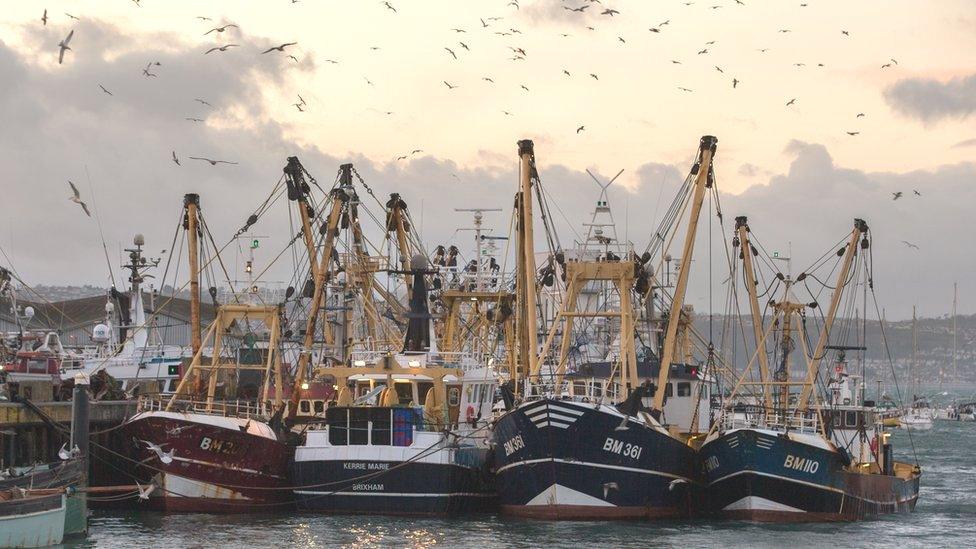Brussels fish talks: New quotas will see cod landings cut by half
- Published
- comments
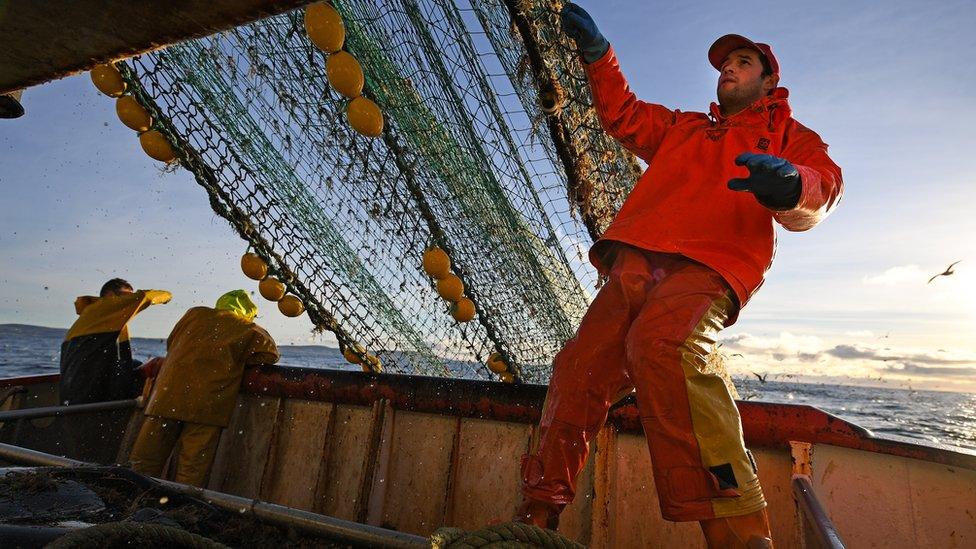
The number of cod which can be legally caught by the UK's fishermen will be halved next year.
It was agreed in the early hours of Wednesday at Brussels talks on fishing quotas for 2020.
Prior to those discussions, representatives of Scottish trawlermen agreed to a 50% reduction in the cod catch in an effort to preserve stocks.
The UK government said that in order to protect the future of the industry it had to fish sustainably.
Scottish Fishermen's Federation (SFF) chief executive Elspeth Macdonald said: "The reduction in the total allowable catch for North Sea cod will have a serious economic impact on the Scottish white fish sector next year, and will present major practical difficulties for the fleet.
"We welcome the commitment to review and update the stock assessment model for North Sea cod, reflecting the changing distribution of cod in the North Sea, most likely as a result of climate change."
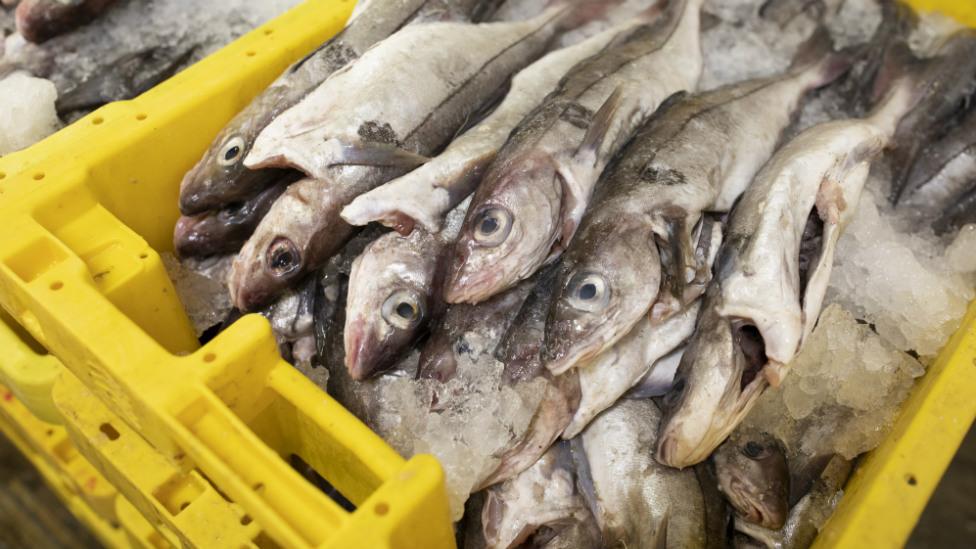
Regulation of the fishing industry will be controlled by the UK after Brexit
Fisheries Secretary Fergus Ewing, who was at the talks in Brussels, added: "With Brexit about to happen it has been clear the EU is already prioritising other members over the state about to walk away.
"That is perhaps unsurprising, but coupled with the challenging scientific advice, it has made this a difficult two days."
Britain is preparing to leave the Common Fisheries Policy regime as a result of Brexit.
Mike Park of the Scottish White Fish Producers' Association (SWFPA) said the next year would be "extremely challenging".
Speaking on the BBC Radio Scotland's Good Morning Scotland programme, he said: "It's a stock that's quite prolific in the northern North Sea.
"There's been significant changes over the whole of the North Sea but essentially next year that will cause the fleet problems which is now our focus to try and resolve that.
"In the next year, as the UK prepares to leave the Common Fisheries Policy, it is vital that the right scientific work is done to improve our understanding of the current status of the stock to enable better decisions to be taken on fishing opportunities for 2021."
Brexit deal
Speaking after the talks concluded, UK fisheries minister George Eustice said: "This year there has been some very challenging science for cod stocks in many parts of the North East Atlantic and we have responded to conserve stocks.
"I know that some of the quota reductions will be very difficult for some sectors of the industry and there has been considerable debate this year about the importance of bycatch allowances to support the delivery of the discard ban.
"However, we also know that to protect the profitability of fisheries in the future, we must fish sustainably today."
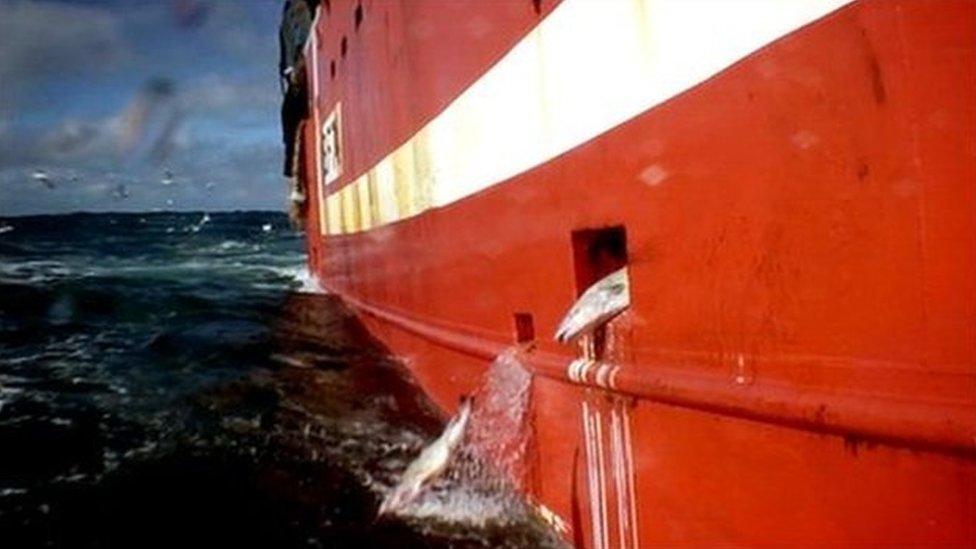
The talks have resulted in small increases in the allowable catches for North Sea ling and skate, as well as the relaxation of some proposed control and management measures
Last year, the UK government set out its plans for the future of fishing after Brexit.
It said devolved nations would have a say in setting annual quotas for third countries, but the environment secretary's decision was final.
It intends to move to a system of quota management which it believes will guarantee a fairer share of the fish in UK waters for UK registered boats.
The rules of the EU's Common Fisheries Policy will continue to apply until December 2020.
Mr Eustice claimed some of the challenges faced by the UK fishing industry had resulted from EU rules.
He said: "Some of the problems have been exacerbated by the fact that the EU's outdated method for sharing quota between member states means that the UK gets a very small share of the cod in our own waters."
Marine sustainability group Open Seas said in a statement: "Devastatingly this decision commits to yet more overfishing in the coming year. Quota for North Sea cod has been set roughly 30% above scientific advice."
Open Seas said the agreements represented "bad decisions for the health of our sea, bad debts that will be owed by future generations, and fail legal pledges to end overfishing".
What difference will this make to prices on the street?
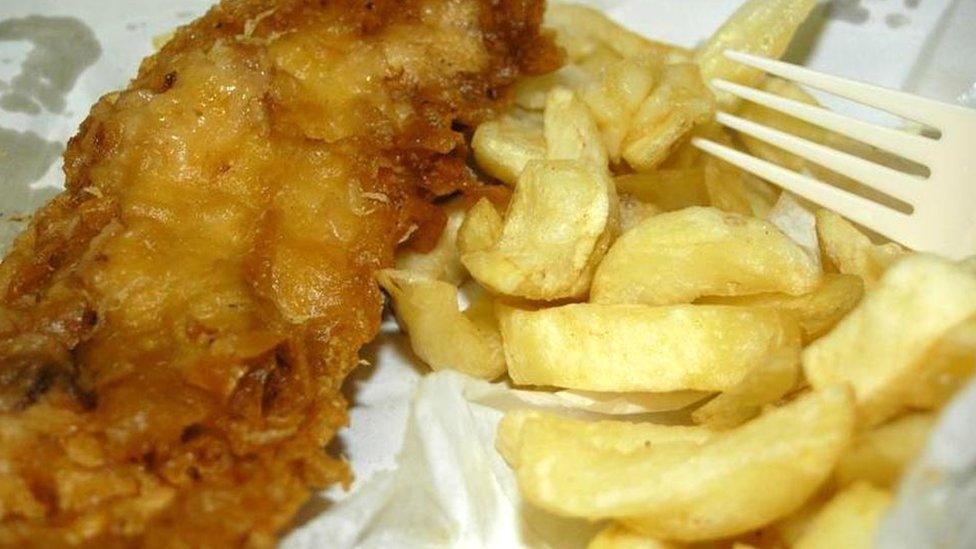
Cod is a traditional fish and chips favourite in England, with battered haddock more popular in Scotland
Industry sources say it is actually very hard - almost impossible in fact - to tell what impact the quotas will have on prices on the street.
With takeaway fish and chips for example, cod is more popular in England - whereas haddock is the staple of the fish supper in Scotland.
With the haddock quota up, in theory it could mean that with more haddock then prices would be a bit lower, and with less cod prices could be a slightly higher.
However a lot of the cod that hits fish and chip shops in England comes from frozen at sea suppliers from Norway.
- Published25 September 2019
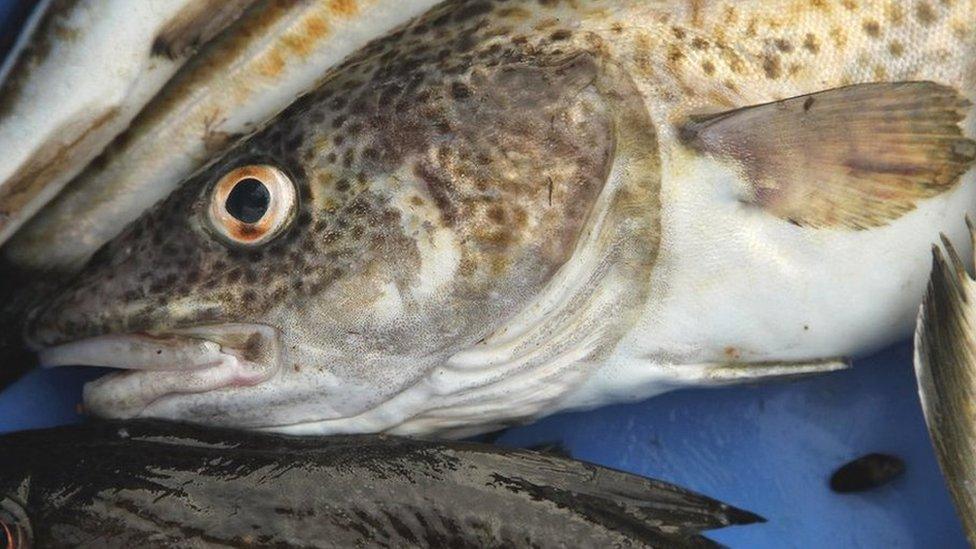
- Published8 February 2019

- Published31 December 2018
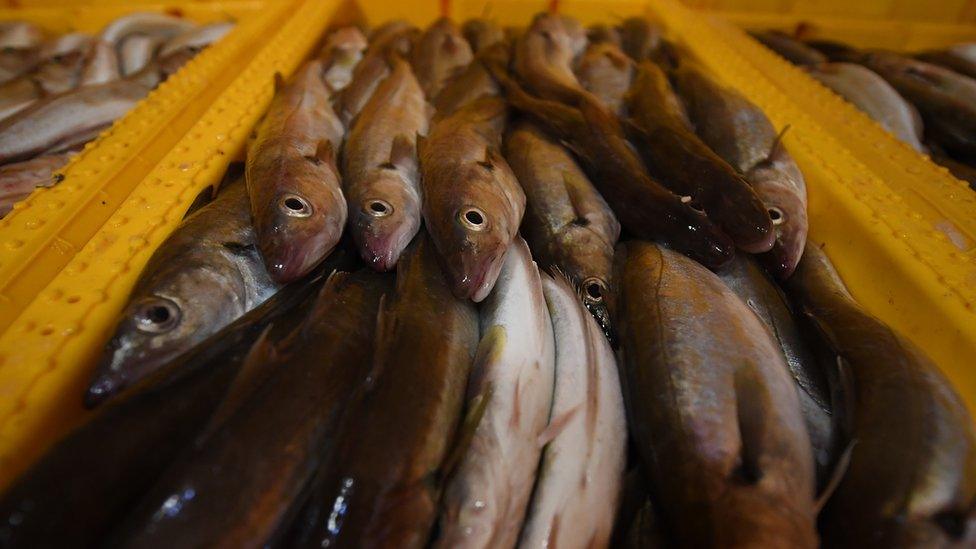
- Published17 December 2018
- Published4 December 2018
- Published22 November 2018
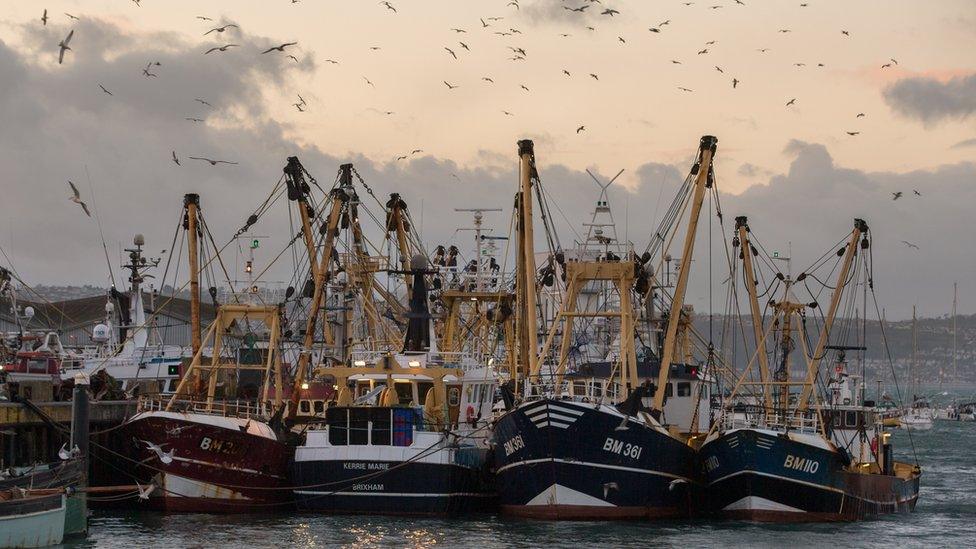
- Published21 November 2018
